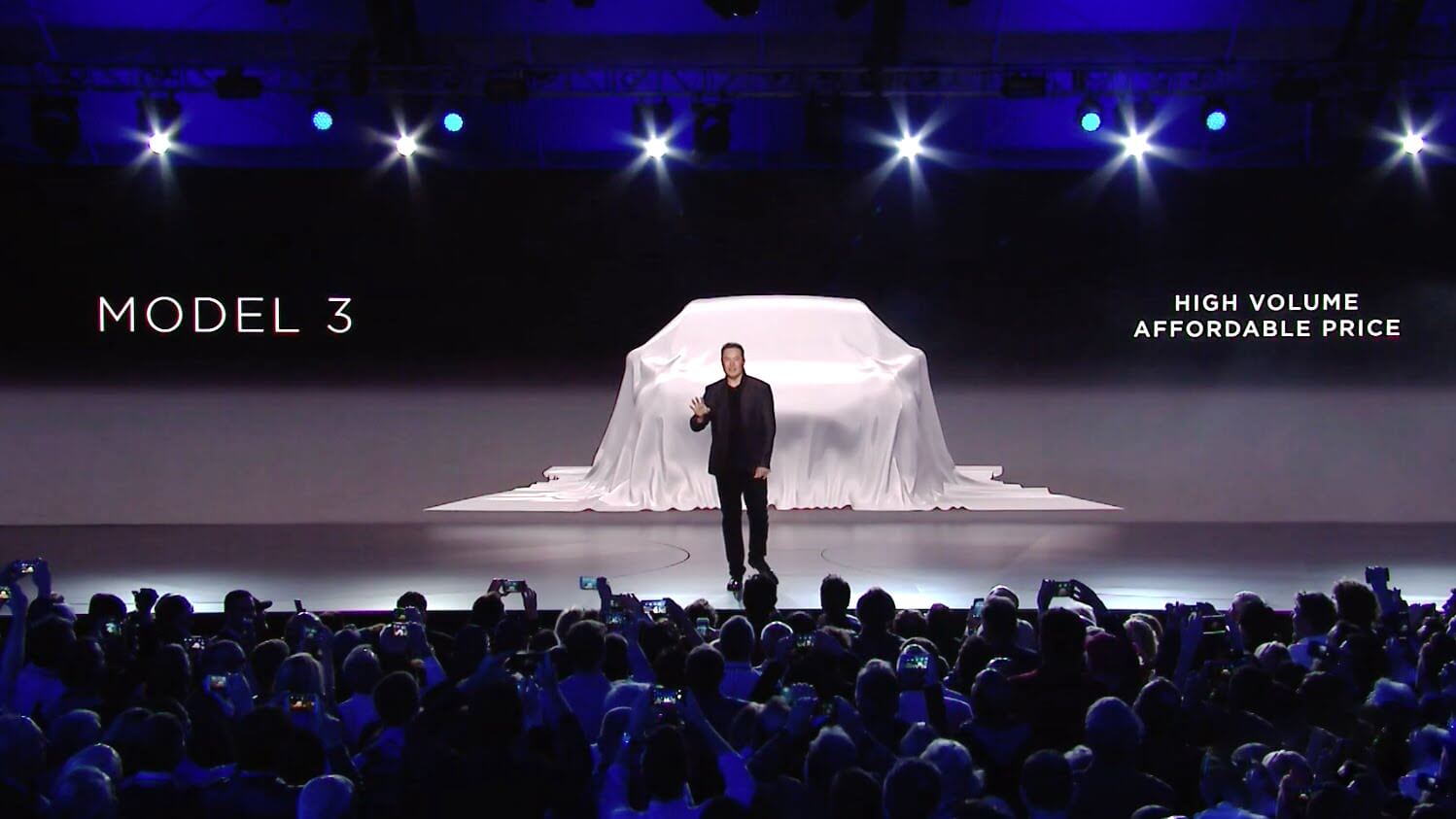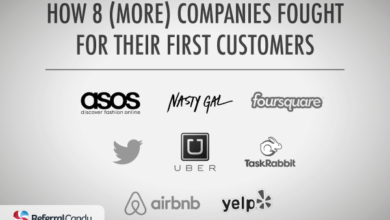Tesla’s “$0 Marketing Budget” Is Awesome Marketing

Tesla’s Model S achieves best safety rating ever
One of the key aspects of Tesla’s marketing strategy is the emphasis on safety and innovation. The Model S, one of Tesla’s flagship vehicles, received a remarkable safety rating of 5.4 out of 5 from the National Highway Safety Administration. This recognition not only highlights the superior quality of Tesla’s vehicles but also reinforces the brand’s commitment to producing safe and reliable electric cars.
By focusing on groundbreaking technology and engineering excellence, Tesla has positioned itself as a leader in the electric vehicle market. The company’s dedication to innovation and sustainability has resonated with consumers, leading to a high demand for Tesla’s products.
Moreover, Tesla’s decision to forgo traditional advertising and instead rely on word-of-mouth and community engagement has been a strategic move that has paid off. The brand’s passionate fan base, consisting of over 55,000 subscribers on the /r/teslamotors subreddit, serves as a powerful marketing force that generates buzz and excitement around Tesla’s products.
Additionally, Tesla’s CEO, Elon Musk, plays a significant role in the brand’s marketing strategy. Musk’s larger-than-life persona and showmanship have helped elevate Tesla’s brand image and attract media attention. Musk’s frequent interviews and public appearances not only showcase his vision for the future of transportation but also reinforce Tesla’s position as an innovative and forward-thinking company.
Furthermore, Tesla’s decision to give away its patents for free and fulfill special requests, such as expediting the production of a Model S for a dying man, demonstrate the brand’s commitment to its customers and community. These acts of kindness and generosity not only create positive publicity for Tesla but also foster strong emotional connections with consumers.
In conclusion, Tesla’s marketing strategy revolves around the core principles of innovation, safety, community engagement, and authenticity. By focusing on creating exceptional products, building a passionate fan base, and showcasing the vision and values of its leadership, Tesla has been able to differentiate itself in a competitive market and establish a strong brand presence. As Tesla continues to push the boundaries of technology and sustainability, its marketing efforts will undoubtedly play a crucial role in shaping the company’s future success.
The release of a new charger prototype by Tesla has caused quite a stir, with the internet reacting in typical fashion – through parody and humor. The charger prototype, which some have likened to something out of a creepy sci-fi movie, quickly became the subject of online parodies and memes. One such parody video, featuring Marvin Gaye music, added a humorous and suggestive twist to the original footage.
The original submission of the charger prototype video on Reddit garnered over 15.5k upvotes, showcasing the viral nature of Tesla’s marketing tactics. Tesla has a unique approach to advertising, often relying on word-of-mouth and viral content to spread awareness about their products.
In addition to the charger prototype, Tesla has also seen success with other marketing campaigns, such as the "Autopilot impressions" videos created by Tesla drivers. These videos, showcasing the Autopilot function in action, have garnered tens of thousands of upvotes on Reddit and other social media platforms.
Another example of Tesla’s marketing success is the reputation of their vehicles for safety. The Tesla Model S was found to be so safe that it broke the safety testing equipment – a fact that has been widely shared and celebrated by fans of the brand.
The construction of the Gigafactory, touted as the biggest and cleanest factory ever, is another example of Tesla’s ability to capture attention and generate buzz. The Gigafactory represents a significant investment in sustainable energy production and has been praised for its innovation and scale.
Tesla has also successfully engaged with influencers and creators, such as the creators of WaitButWhy and The Oatmeal, who have created content that celebrates and promotes the brand. By winning over these influential voices, Tesla has been able to reach a wider audience and generate positive buzz around their products.
One of Tesla’s most effective marketing strategies has been the mastery of the power of names. By using retronyms like "gasoline cars" to describe traditional vehicles, Tesla has been able to position themselves as the future of transportation. This approach highlights the innovative nature of Tesla’s products and emphasizes the need for sustainable alternatives to traditional vehicles.
In addition to these marketing successes, Tesla has also leveraged the power of fan-generated content to promote their brand. Initiatives like Project Loveday, a contest for fan-made ads, have allowed Tesla to harness the creativity and passion of their supporters to create engaging and authentic marketing content.
Overall, Tesla’s marketing strategies offer valuable lessons for retailers looking to build a successful brand. By focusing on creating valuable products, telling compelling stories, and engaging with influencers and fans, retailers can emulate Tesla’s success in capturing attention and generating positive buzz.
FAQs:
- What is the reaction to Tesla’s new charger prototype?
The new charger prototype released by Tesla has been met with parody and humor online, with many users creating memes and parody videos. - How has Tesla engaged with influencers and creators?
Tesla has successfully engaged with influencers and creators, such as the creators of WaitButWhy and The Oatmeal, who have created content that celebrates and promotes the brand. - What is the significance of the Gigafactory?
The Gigafactory, touted as the biggest and cleanest factory ever, represents a significant investment in sustainable energy production and has been praised for its innovation and scale. - How has Tesla leveraged fan-generated content for marketing?
Tesla has launched initiatives like Project Loveday, a contest for fan-made ads, to harness the creativity and passion of their supporters to create engaging marketing content. - What lessons can retailers learn from Tesla’s marketing strategies?
Retailers can learn from Tesla’s focus on creating valuable products, telling compelling stories, and engaging with influencers and fans to build a successful brand and generate positive buzz. the importance of mental health awareness in the workplaceMental health has long been a taboo topic, especially in the workplace. However, the importance of mental health awareness in the workplace cannot be overstated. With the increasing pressure and demands of the modern work environment, it is crucial for employers to prioritize the mental well-being of their employees.
One of the key reasons why mental health awareness is essential in the workplace is because mental health issues are incredibly common. According to the World Health Organization, depression and anxiety disorders are two of the most common mental health conditions worldwide. This means that chances are, at least some of your employees are struggling with their mental health.
Ignoring mental health issues in the workplace can have serious consequences. Employees who are struggling with their mental health are more likely to experience burnout, reduced productivity, and increased absenteeism. This not only impacts the individual employee, but it also affects the overall performance and success of the organization.
By promoting mental health awareness in the workplace, employers can create a supportive and inclusive environment where employees feel comfortable discussing their mental health concerns. This can help to reduce stigma surrounding mental health issues and encourage employees to seek help when needed.
There are several ways in which employers can promote mental health awareness in the workplace. One of the most effective strategies is to provide mental health training for managers and employees. This training can help individuals recognize the signs of mental health issues in themselves and others, as well as provide resources and support for those who may be struggling.
Employers can also implement policies and programs that prioritize mental health and well-being. This can include offering flexible work arrangements, providing access to mental health resources and support services, and creating a culture that values open communication and empathy.
Additionally, employers can encourage a healthy work-life balance and promote self-care practices among employees. This can help to reduce stress and prevent burnout, which are common contributors to mental health issues in the workplace.
Overall, promoting mental health awareness in the workplace is crucial for creating a healthy and productive work environment. By prioritizing the mental well-being of employees, employers can not only improve the overall performance of their organization but also support the mental health and well-being of their workforce. It is time to break the stigma surrounding mental health in the workplace and create a culture of understanding, support, and compassion. the topic "The Importance of Mental Health in the Workplace"
Mental health is a critical aspect of overall well-being, and it is just as important as physical health. This is especially true in the workplace, where employees spend a significant amount of their time. In recent years, there has been a growing recognition of the importance of mental health in the workplace, and many companies are taking steps to prioritize the mental well-being of their employees.
There are several reasons why mental health is important in the workplace. First and foremost, mental health issues can have a significant impact on an individual’s ability to perform their job effectively. Conditions such as anxiety, depression, and stress can all affect an employee’s productivity, motivation, and overall job satisfaction. By addressing mental health in the workplace, employers can help to ensure that their employees are able to perform at their best.
Furthermore, mental health issues can also have a negative impact on the overall workplace environment. Employees who are struggling with mental health issues may be more likely to experience conflicts with their colleagues, have difficulty working in teams, or struggle to communicate effectively. This can lead to a toxic work environment that is not conducive to productivity or employee well-being.
In addition to the impact on individual employees, mental health issues can also have financial implications for employers. Research has shown that mental health issues in the workplace can lead to increased absenteeism, reduced productivity, and higher healthcare costs. By investing in mental health initiatives, employers can help to reduce these costs and improve the overall financial health of their organization.
There are several steps that employers can take to prioritize mental health in the workplace. First and foremost, it is important to create a culture that supports mental health and well-being. This can include promoting work-life balance, providing access to mental health resources, and destigmatizing mental health issues. Employers can also offer mental health training for managers and employees, as well as access to mental health professionals through employee assistance programs.
It is also important for employers to provide a supportive and inclusive work environment where employees feel comfortable discussing their mental health concerns. This can help to ensure that employees are able to seek help when needed and receive the support they require to manage their mental health effectively.
Overall, the importance of mental health in the workplace cannot be overstated. By prioritizing mental health initiatives, employers can help to create a healthier, more productive, and more inclusive workplace for all employees. By investing in mental health, employers can not only improve the well-being of their employees but also the overall success of their organization.



